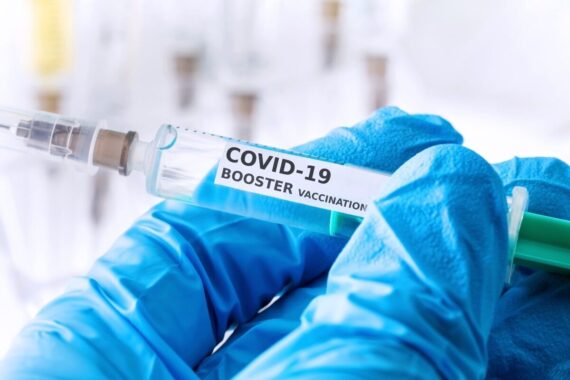This year’s spring Covid vaccine booster programme will include a larger number of children who are immunosuppressed, the Joint Committee on Vaccination and Immunisation (JCVI) has confirmed.
The advice for the upcoming campaign is similar to last year where boosters were offered to those aged 75 years and over and residents in care homes.
But the advice for those who are immunosuppressed has been extended from those over five years to everyone six months and older, an update said.
It follows an autumn campaign that invited the over 65s and high risk clinical groups for vaccination as well as frontline NHS and social care staff.
The committee said as with previous booster campaigns the focus is on those at highest risk of serious disease who are most likely to benefit from Covid-19 vaccination.
NHS England will confirm details on how and when eligible people can access the spring vaccine in due course, the announcement said.
Surveillance data from the UK Health Security Agency (UKHSA) on last spring’s programme showed that those who received a vaccine were around 50% less likely to be admitted to hospital with Covid-19 from two weeks following vaccination, compared to those who did not receive one.
UKHSA analysis has also shown a continued need for Covid boosters which provide significant protection against death but this wanes after six months.
A study of more than 10.6 million cases of Covid-19 in adults that had been recorded by England’s laboratory reporting system between May 2020 and February 2022 found a clear time link between a fall in ‘case fatality risk’ and when the age group became eligible for Covid-19 vaccination and first booster.
Vaccine uptake for last year’s spring programme for those aged 75 years and over was 67.5%, figures show.
Professor Wei Shen Lim, chair of Covid-19 immunisation on the JCVI, said: ‘The Covid-19 spring programme will continue to focus on those at greatest risk of getting seriously ill, who will benefit the most from a further vaccine dose.
‘It is important that everyone who is eligible takes up the offer this spring. Current vaccines provide good protection against severe disease, hospitalisation and can protect those most vulnerable from death.’
Dr Mary Ramsay, UKHSA director of public health programmes added: ‘Our on-going surveillance shows that Covid-19 continues to cause severe illness, particularly in older age groups and those who are immunosuppressed, but also clearly shows that spring and autumn vaccines are effective in helping to protect those most at risk – halving the likelihood of hospitalisation from the virus.
‘I urge everyone who is eligible to take up the offer of a vaccine as soon as possible once invited – it will help improve your immunity to Covid-19, which does wane over time.’

















With which vaccine?
Seeing as there are now several very different vaccines available.
How does immunogenicity, lengevity, and short and long-term side effect profiles differ?